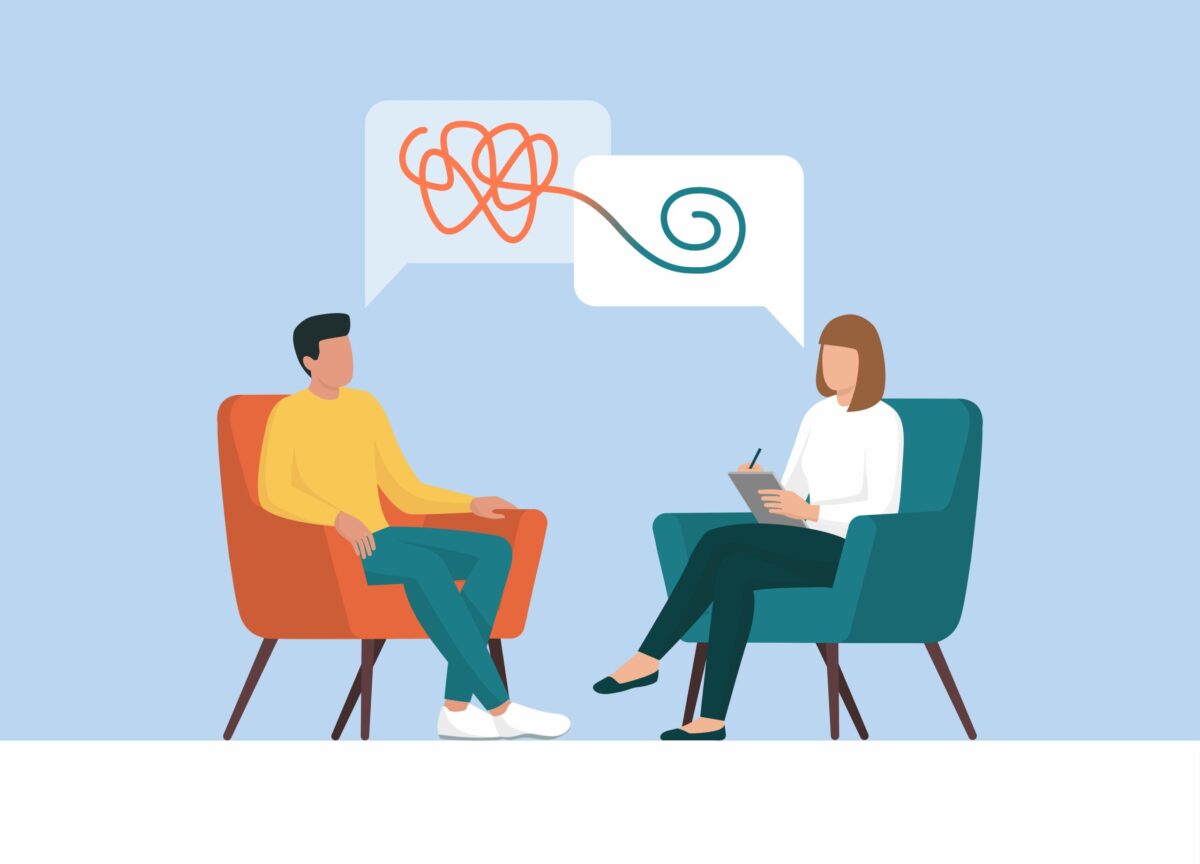You may have had a friend suggest, “maybe you should talk to someone.” Or maybe there are some things affecting your mental health and you’d like some professional help finding coping skills. That’s a great first step to improving your mental health.
Karissa Hyrchuk, a behavioral health care manager for BlueCross BlueShield of Tennessee, says finding the right therapist for you should be approached thoughtfully.
“The relationship you build with your therapist is the foundation on which the most work for your mental health is done,” she says. “A good therapist is going to ask you questions that require deep reflection and honest, vulnerable answers. It’s important for you to feel safe sharing those thoughts and feelings with this individual.”
Here’s how to find the right match.
Qualities to look for in a therapist
Karissa Hyrchuk: Everyone will be looking for something slightly different in a therapist. So it’s best to think about what you value in a therapeutic relationship and go from there.
You can start by asking yourself:
- What characteristics or world views would be most likely to encourage you to feel comfortable and trusting?
- Do you want religion or faith to be a factor?
- Does the therapist’s gender matter to you?
- You might also consider personality or communication styles. For example, do you respond better to someone with a “warm and fuzzy” manner or a more direct communication style?
WellTuned tips for finding inclusive mental health care.
Where to look for a therapist
If you don’t already have a potential therapist in mind, you’ll need to search for possible candidates:
- Ask your primary care provider for referrals
- Ask trusted friends or family members for recommendations
- Consult your insurance company’s provider directory
- Talk to a case manager with your insurance company’s behavioral health case management service for assistance
- Search for a mental health professional in your community online with an online database or service such as FindATherapist.com or PsychologyToday.com, which can provide the ability to filter your search results by various qualities, including training and years of experience – be sure to research anyone you find through these databases, or ask your insurance company
Karissa Hyrchuk: I encourage people to choose at least five candidates who interest them. Then call to check availability for new patients, and schedule an initial consultation or conversation. Consider having a session or conversation before making a final decision about whether or not they’re a good fit for you.
How to vet a potential therapist
Karissa Hyrchuk: It’s important to validate a therapist’s training and credentials when you’re considering working with them. Many people don’t know about all the various types of licensed clinicians who are qualified to provide therapy, so you want to understand your options before you make a choice.
For example, if you’re interested primarily in therapy, as opposed to medication management, you may want to look for:
- a licensed professional counselor (LPC),
- a licensed clinical social worker (LCSW),
- a licensed marriage and family therapist (LMFT), or
- a clinical psychologist (PsyD or PhD).
You should also consider their experience in the field, including the kinds of patients they’ve served. And be sure to develop a list of questions for your therapist to help ensure he or she is a good match for you.
The American Psychological Association (APA) also recommends asking these questions before you settle on a therapist:
- Is this therapist licensed in my state?
- Will my health insurance cover therapy with this provider?
- How many sessions will be covered?
Don’t rule out telehealth
When considering a therapist, you might also ask whether they offer mental health services via telehealth.
Karissa Hyrchuk: Many people like sitting down in person with a therapist. But research has shown that therapy delivered by telehealth is just as helpful. Plus, if you value your privacy, telehealth helps you avoid running into someone you know in a waiting room.
Telehealth also offers increased flexibility in terms of scheduling your appointments. And it eliminates barriers such as transportation and travel time and expenses. If any of those factors have been holding you back from seeking therapy in the past, telehealth could be a great option for you, and I encourage you to try it.
7 questions to ask yourself to check in on your mental health.
Get more information about specific health terms, topics and conditions to better manage your health on bcbst.com. BlueCross BlueShield of Tennessee members can access wellness-related discounts on fitness products, gym memberships, healthy eating and more through Blue365®. BCBST members can also find tools and resources to help improve health and well-being by logging into BlueAccess and going to the Managing Your Health tab.


